Filter by

Defence Policy-Making A Close-Up View, 1950-1980 - A Personal Memoir
Sir Arthur Tange was perhaps the most powerful Secretary of the Australian Defence Department and one of the most powerful of the great ‘mandarins’ who dominated the Commonwealth Public Service between the 1940s and the 1970s. His strong, and often decisive, influence on both administration and policy was exerted by virtue of his intellectual capacity, his administrative ability and the she…
- Edition
- -
- ISBN/ISSN
- 9781921313868
- Collation
- 164 p
- Series Title
- -
- Call Number
- 355.6092 TAN d
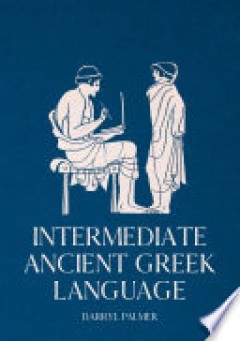
Intermediate Ancient Greek Language
Intermediate Ancient Greek Language is a series of Lessons and Exercises intended for students who have already covered most of an introductory course in the ancient Greek language. It aims to broaden and deepen students’ understanding of the main grammatical constructions of Greek. Further attention is given to grammatical forms to illustrate their functions. In the Lessons, tragedy, come…
- Edition
- -
- ISBN/ISSN
- 9781760463434
- Collation
- xiii,402 p
- Series Title
- -
- Call Number
- 488.2421 MER I
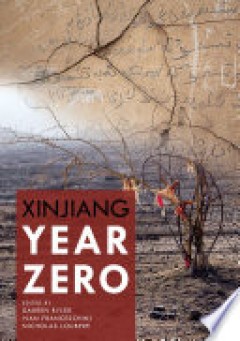
Xinjiang Year Zero
Since 2017, the Chinese authorities have detained hundreds of thousands of Uyghurs, Kazakhs and other Muslim minorities in ‘reeducation camps’ in China’s northwestern Xinjiang autonomous region. While the official reason for this mass detention was to prevent terrorism, the campaign has since become a wholesale attempt to remould the ways of life of these peoples—an experiment in social…
- Edition
- -
- ISBN/ISSN
- 9781760464950
- Collation
- 338 p
- Series Title
- -
- Call Number
- 951.6 INI X
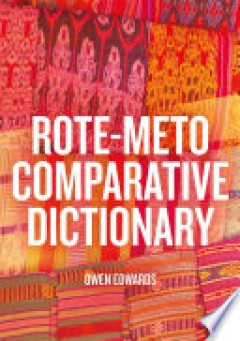
Rote-Meto Comparative Dictionary
This comparative dictionary provides a bottom-up reconstruction of the Rote‑Meto languages of western Timor. Rote-Meto is one low-level Austronesian subgroup of eastern Indonesia/Timor-Leste. It contains 1,174 reconstructions to Proto-Rote-Meto (or a lower node) with supporting evidence from the modern Rote-Meto languages. These reconstructions are accompanied by information on how they relat…
- Edition
- -
- ISBN/ISSN
- 9781760464578
- Collation
- 464 p
- Series Title
- -
- Call Number
- 499.5 RDS R
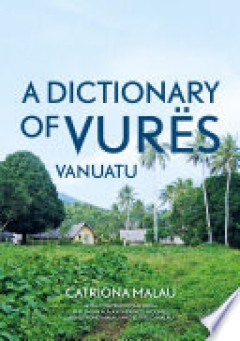
A Dictionary of Vurës, Vanuatu
This is a trilingual dictionary of Vurës, with meanings provided in both English and Bislama, the national language of Vanuatu. Vurës is an Oceanic language spoken on the island of Vanua Lava in Vanuatu. The dictionary is a companion volume to A Grammar of Vurës, Vanuatu (Malau 2016). There is no established tradition of writing in Vurës and most speakers are not literate in their own langu…
- Edition
- -
- ISBN/ISSN
- 9781760464615
- Collation
- -
- Series Title
- -
- Call Number
- 499.5 LAU A
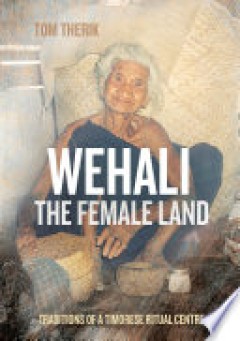
Wehali: The Female Land
Wehali defines itself as the ritual centre of the island of Timor. As a ritual centre, Wehali continues to be the residence of a figure of traditional authority on whom, in the 18th century, the Dutch conferred the title of Kaiser (Keizer) and to whom the Portuguese gave the title of Emperor (Imperador). At one time, Wehali was the centre of a network of tributary states, which both the Dutch a…
- Edition
- -
- ISBN/ISSN
- 9781760464851
- Collation
- -
- Series Title
- -
- Call Number
- 959.86
 Computer Science, Information & General Works
Computer Science, Information & General Works  Philosophy & Psychology
Philosophy & Psychology  Religion
Religion  Social Sciences
Social Sciences  Language
Language  Pure Science
Pure Science  Applied Sciences
Applied Sciences  Art & Recreation
Art & Recreation  Literature
Literature  History & Geography
History & Geography